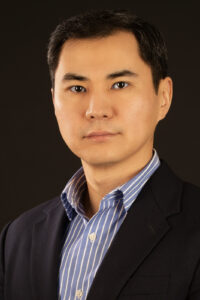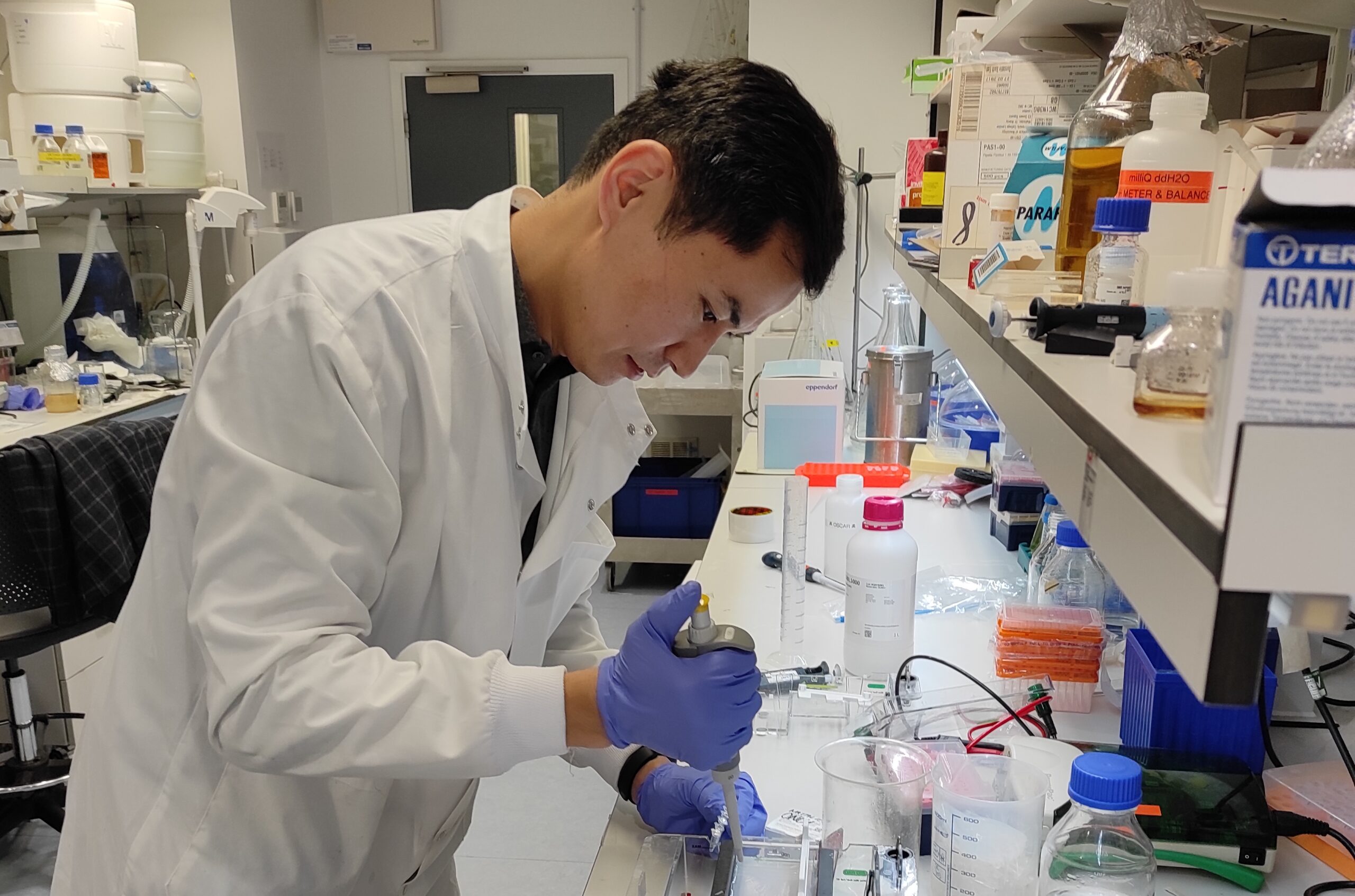LONDON – Brain biobanks have been instrumental in uncovering the causes and consequences of neurodegenerative diseases. In an interview with The Astana Times, Kazakh clinician-scientist Rauan Kaiyrzhanov spoke about their research impact and shared his medical perspective on the idea of creating a brain biobank in Kazakhstan.

Rauan Kaiyrzhanov.
Kaiyrzhanov is a pioneer in Kazakh-British cooperation in neurogenetics. The young doctor began his research in 2015 in the University College London (UCL). Later, he has been collecting deoxyribonucleic acid (DNA) samples from patients with rare neurological diseases in the National Center of Neurosurgery in Astana for their further genetic analysis in the British capital.
Since 2017, his team has collected DNA samples from more than 3,000 families with rare early-onset neurological diseases and more than 3,000 samples from patients with Parkinson’s and Alzheimer’s diseases in the countries of Central Asia and Transcaucasia. The Parkinson’s disease project is sponsored by the Michael J. Fox Foundation (MJFF), the organization that provides grants directly to scientists it deems most likely to discover a cure for Parkinson’s disease.
The global challenge of neurodegenerative diseases
Neurodegenerative diseases affect millions of individuals worldwide, with Alzheimer’s and Parkinson’s diseases being the most prevalent.
“The likelihood of developing these conditions increases with age and is further amplified by a country’s intensified industrialization. More developed countries face a higher risk. This pattern contrasts with other diseases, which tend to be more prevalent in areas with lower economic prosperity,” said Kaiyrzhanov.

Photo credit: Kaiyrzhanov.
“Many neurodegenerative diseases do not arise from a single gene mutation. Instead, they result from genetic predisposition, which represents an interplay of various genes and the combined effect of genetic factors and environmental influences,” he noted.
As the number of specialists for a specific disease increases in a country, the reported incidence of that disease often appears to rise due to improvements in diagnostic capabilities. In this context, DNA samples play a crucial role in advancing the understanding of neurodegenerative diseases and improving diagnostic and treatment options.
What is a biobank used for?
The DNA samples are stored in specially designed biobanks, categorized according to specific profiles. Biobanking represents the collection, storage, and management of biological samples, including blood, tissue and saliva.
“A biobank is an essential resource for scientific research. It allows us to gain a deeper understanding of ourselves and the diseases that affect us. It supports practical healthcare and helps to develop preventive medicine,” said Kaiyrzhanov.
“There are biobanks in Kazakhstan as part of universities. At the same time, there is no unified network and coordination body for these structures. First and foremost, its implementation entails the involvement of highly qualified specialists with great enthusiasm,” he said.
As noted by the researcher, the idea of creating a national biobank in Kazakhstan was discussed multiple times previously, but didn’t receive sufficient state support.
Kaiyrzhanov cited the U.K. Biobank as an example. The U.K. Biobank contains biological samples from 500,000 participants, including their anonymized genetic, lifestyle, and health data.
It also processes official requests, including those from Kazakhstan for locally collected materials. The DNA samples collected from Kazakhstan are not included in the U.K. Biobank. Instead, they are stored in the university’s separate biobank.
Biobanks require an additional fee, thereby generating commercial profit and serving both scientific and commercial purposes. In doctor’s opinion, fast growing digitalization in Kazakhstan, particularly computerized licensing, allows more opportunities for international cooperation compared to other Central Asian countries.
Brain sample collection
Practically, the process of collecting brain samples is much more complex. The brain biobank gathers, processes, preserves, and shares human post-mortem brain tissue for research.
“The brain dies without oxygen. Therefore, specialists have to act quickly. They open the skull and divide it into two parts. One part is preserved in formalin for anatomical research, while the other part must be rapidly frozen in dry ice or liquid nitrogen. Brain samples are stored in freezers at -80 C or if using liquid nitrogen, then at -290 C,” he explained.
Today, UCL cooperates with Astana Medical University, West Kazakhstan Marat Ospanov Medical University, South Kazakhstan Medical Academy (SKMA), Semei Medical University, and the Almaty-based Shashkin Clinic. Apart from Kazakhstan, the university’s specialists work with Armenia, Azerbaijan, Georgia, and Tajikistan.
Bridging donor contributions to scientific breakthroughs
“Biological samples should be obtained from both individuals with illnesses and healthy populations,” said Kaiyrzhanov.
For this purpose, Kaiyrzhanov suggests focusing on patient and public involvement and engagement (PPIE). PPIE helps to build relationships between researchers and patients. It entails innovation that can be co-created with the public. The term is also a course in the faculty of medicine across universities worldwide.
“The primary objective of this initiative is to engage in a meaningful endeavor that serves the greater good of humanity. A key aspect of this effort is the education and awareness of the public regarding the importance of scientific research projects within the country,” he said.
“It is vital that patients are comprehensively informed about all facets of the process and retain the right to withdraw their consent at any time. This approach ensures ethical transparency and fosters trust within the community,” he added.
People should be willing to undergo medical examinations. According to Kaiyrzhanov, it is essential to prepare the public by fostering trust in the medical community and national scientific research.
